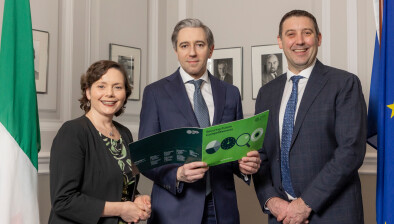Supreme Court: Quinn Insurance ordered to pay €5m to cover PwC’s costs while security for costs is being calculated

Killian Flood BL
The Supreme Court has ordered Quinn Insurance Limited to provide €5 million in “interim security” for PricewaterhouseCoopers in order to avoid a stay on its proceedings. The ruling arose from a previous Supreme Court decision that QIL has to provide security for costs to PwC.

About this case:
- Citation:[2021] IESC 39
- Judgment:
- Court:Supreme Court
- Judge:Mr Justice Frank Clarke
It was argued by QIL that the €5 million should be paid in order to avoid a stay being placed on the proceedings while PwC’s security for costs was being calculated. The court agreed, but held that a stay would come into effect in January 2022 unless security in an agreed sum had been put in place by QIL. The court emphasised the need to conduct the already-expensive litigation with due expedition.
Background
In March 2021, the Supreme Court ruled that QIL was required to provide security for costs to PwC for litigation which arose out of the collapse of QIL following the global financial crisis. The proceedings had been long, complex and extremely expensive, with costs estimated at €30 million.
As a result of that judgment, two issues were identified by the parties. First, QIL accepted that it was liable to pay PwC’s costs of the appeal, but argued that a stay should be placed on a costs order pending the outcome of the proceedings. This was accepted by the court.
Second, and more importantly, it was argued that the proceedings should not be stayed prior to determining the level of security that had to be provided to PwC. It was submitted by PwC that the normal rule should be followed, meaning that a stay should be placed until security was calculated and provided by QIL.
In contrast, QIL argued that a €5 million payment could be made to act as “interim security,” which would cover PwC’s costs until the full security was calculated and provided by QIL. This was proposed to offset any prejudice that might be caused to PwC if a stay was not placed while security for costs was being measured.
PwC opposed the proposal, stating that there was no evidential basis to suggest that €5 million could meet the costs it would incur in continuing to run proceedings until the level of security was directed. QIL responded that it was open to PwC to put forward contrary estimates if it wished to contest the adequacy of the €5 million sum. It was suggested that the costs of discovery for PwC during this period could be as much as €10 million.
PwC also submitted that it had already incurred substantial costs in the security for costs application and related appeals, and therefore should not be exposed to a risk of bearing those costs without security. In turn, QIL submitted that this exposure already existed, as QIL would not be able to pay any costs to PwC if the proceedings did not go ahead.
Finally, counsel for QIL indicated that it intended to make an application to the President of the High Court to authorise a payment from the Insurance Fund to finance the security in the case. It was submitted that, if the President were to refuse such application, then the proceedings would come to an end and PwC’s previous costs would be unsecured. The only potential injustice, therefore, lay in further High Court proceedings to ascertain the level of security to be paid.
Supreme Court
Giving judgment in the matter, Mr Justice Frank Clarke accepted QIL’s proposal to pay €5 million to avoid a stay on the proceedings. The court began by noting that, in some cases, a phased payments of security may be appropriate rather than payment of all security. However, it was also stated that an excessive “salami slicing” of security could significantly add to the costs of proceedings as many contested applications may be brought by parties. Accordingly, the court agreed with PwC that it was not appropriate to introduce such practice in the present case.
Despite this, the court held that the proceedings had been ongoing for a considerable period of time and were still a very long way away from trial. Although the case was complex, it was also important to ensure that the litigation was concluded within a reasonable timescale. The court was “anxious” to get the matter to trial as quickly as possible and therefore did not wish to take any course of action which could prolong proceedings.
Accordingly, the court adopted the proposal of QIL. It was accepted that there could be no certainty that €5 million could cover costs for the next year, but the task of estimating PwC’s costs was not necessarily more complex than other cases.
The court suggested that both parties should act urgently to procure reports as to the appropriate amount of security. The court said: “The parties should use best endeavours to agree as much as possible and should, in particular, not adopt overly confrontational positions on aspects of the calculations which will not make a very great difference to the final result.”
The court noted that significant progress had been made on discovery in the case, but some issues remained. In those circumstances, the court held that the €5 million proposal by QIL was reasonable.
However, the court also said that this was conditional on the security issue being progressed with expedition. As such, the court said that a stay would be placed on proceedings as of January 2022 unless the security was agreed or if the case management judge considered that QIL had acted expeditiously. The court said that this was appropriate incentive to progress the case. If PwC was guilty of any delay, then the absence of a stay could continue, resulting in further costs.
Conclusion
The court held that a stay would be placed on the appeal costs until the determination of the proceedings. Further, the substantive proceedings would not be stayed pending the directing of security by the High Court, on condition that €5 million was provided as security by QIL. If security was not finalised by the end of the year, then either QIL or PwC could face negative consequences arising from the court order. The €5 million was to be lodged within seven days.










